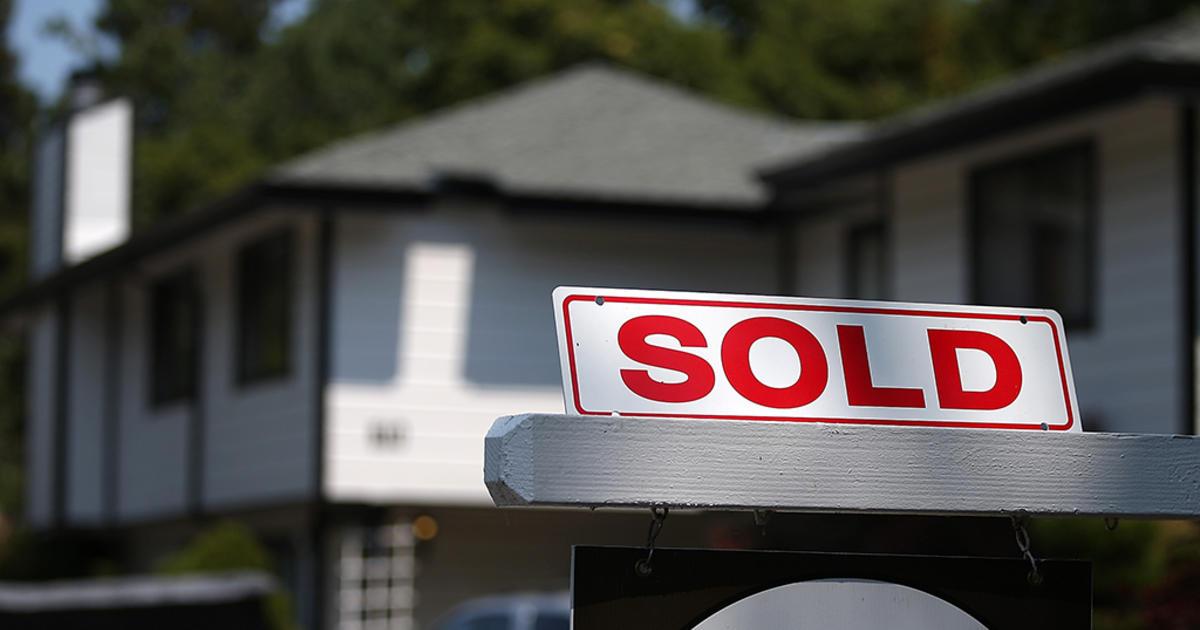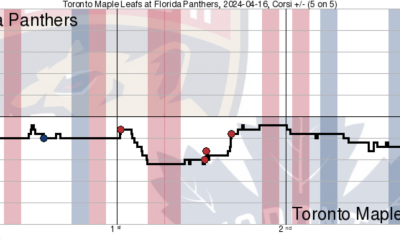Real eState
Fed’s Rate Hikes Aren’t Bulldozing Commercial Real Estate— Yet. – Forbes


Wednesday’s announcement by the Federal Reserve of another ¾ point interest rate increase continues the central bank’s grim war with inflation. Higher rates are doing damage across the economy, which has never stabilized after the COVID-19 shock. But commercial real estate, vital to cities’ economic and fiscal well-being, hasn’t taken a big hit—yet.
Ever-higher interest rates are slowing the economy, and if the Fed keeps this up, it will induce a recession (which seems to be its goal.) Although some detected a softening in Chairman Jay Powell’s remarks on today’s rate hike, stock markets dropped sharply in reaction to Powell saying it was “premature” to consider suspending increases, saying “we have a ways to go.” That doesn’t bode well for the economy, or for jobs and demand, or for commercial real estate.
Cities and urban experts are especially worried about the impact on commercial real estate, which still has not recovered from the COVID-19 pandemic. That induced a rise in working from home (WFH) and a parallel drop in office occupancy, and there are signs those impacts are becoming somewhat permanent. The much-watched Kastle Office Occupancy barometer, measuring keycard swipes in ten major real estate markets, has been trending slowly upward, but the ten-city average still hasn’t broken 50%.
Forbes’ Jonathan Ponciano points out the Fed has now pushed interest rates to their “highest level since the Great Recession.” The Fed is reacting to continuing high inflation, even though many economists argue inflation is being driven by factors outside the Fed’s control, including food and energy price hikes caused by Russia’s aggressive war in Ukraine.
The Fed-induced slowdown has put downward pressure on office building rents and also thrown a shadow over future office construction. Cities depend on office work to provide jobs, both directly and for lower-paid workers who provide services like restaurants, security, and cleaning. The office sector also pays taxes, rents to landlords, and interest payments to banks.
These pressures on commercial offices worries many observers. Some scholars predict a commercial real estate “apocalypse,” seeing downward pressure on real estate values, and cheaper and shorter-term leases reflecting reduced demand as landlords scramble for tenants. Their analysis for New York City predicts “long-run office valuations that are 39.18% below pre-pandemic levels,” which could lead to a “fiscal doom loop” for city budgets.
It isn’t just scholars who are worried. In August, the Federal Deposit Insurance Corporation (FDIC) noted a concern about banks with large commercial real estate (CRE) concentrations, and said examiners will “be increasing their focus on CRE transaction testing,” especially on new loans and risks to bank balance sheets.
Thus far, we aren’t seeing a CRE meltdown. On the one hand, there’s downward pressure on property prices because as Eliot Kijewski of Cushman and Wakefield points out, “buyers’ inability to access credit at the once-historically low interest rates is chilling the investment market.”
But loan repayments aren’t collapsing. The Mortgage Bankers’ Association reports third-quarter delinquencies on commercial and multifamily lending actually fell slightly, part of a downward trend in 2022. Retail and lodging loans continued to be the worst, but even there delinquencies are moving down.
Delinquencies aren’t worsening because tenants’ rent payments haven’t collapsed, allowing landlords to pay their loan charges. CommercialEdge reported that September average office rents were down “2.4% year-over-year,” with a lot of geographic and sectoral variation—not increasing, but not a collapse.
There’s anecdotal data that clients are are pursuing high-end Class A office space, although they may be moving from existing, less desirable offices. Those older, less modern offices they are leaving are the big worry hanging over the sector and over cities.
Commenting on some positive moves by large New York companies into expensive new Class A offices, the New York Post quoted Jeff Peck of Savills saying “the subtext is who is going to absorb the spaces they’re leaving?” He noted that economic troubles for less affluent tenants will lead to demand for reduced rents and that “will cause real pain to these Class B minus buildings.”
That’s the essential commercial real estate and city budget problem from the Fed’s recession drive. Smaller businesses and non-profits will stop growing or shrink (or go out of business) in a recession, lowering demand for their office space. Some of those older buildings can be repurposed into residences, but that process takes time and requires more nimble policies from cities to encourage the transition.
And as Powell noted, the Fed likely isn’t done raising rates and pushing for a recession. That will bring losses in jobs, businesses, and overall well-being, with the impacts falling hardest on low-income and vulnerable workers, and disproportionately on Blacks and other minorities.
So we don’t yet have a commercial real estate “apocalypse.” But the Fed ‘s push for a recession means cities and the commercial office sector likely have further to fall.
Real eState
Real Estate Stocks Fall As Mortgage Rates Rise To 4-Month Highs: 'Inflation Is Proving Tougher To Bring D – Benzinga


Real estate stocks slid at Wednesday’s market open, weighed down by the latest disappointing data on housing starts and a spike in mortgage rates, darkening the outlook for the sector.
By 9:00 a.m. EST, the Real Estate Select Sector SPDR Fund XLRE had dropped by 0.3%. This marked its fourth consecutive day of losses and set a course for its lowest close since the end of November 2023.
The fund has also slipped below its 200-day moving average, a critical long-term benchmark, signaling that investor sentiment has turned negative.
The average interest rate for 30-year fixed-rate mortgages with loan balances up to $766,550 climbed by 12 basis points to 7.13% for the week ending Apr. 12, 2024, according to the latest figures from the Mortgage Bankers Association. This rate is the highest recorded since early December.
On Wednesday, the yield on a 30-year Treasury bond, a key benchmark for long-term mortgage rates, traded at 4.75%, at the highest since mid-November 2023, as Fed Chair Powell admitted that there has been a lack of progress in the disinflation trend.
Chart: Real Estate Stocks Fall Below Key Long-Term Moving Average As Inflation Bites Again
Weaknesses In Multifamily Segment Continue
Joel Kan, MBA’s Vice President and Deputy Chief Economist, explained the rise in rates, stating, “Rates increased for the second consecutive week, driven by incoming data indicating that the economy remains strong and inflation is proving tougher to bring down.”
Despite the uptick in mortgage rates, there was a 3.3% week-over-week increase in the Market Composite Index, which measures mortgage loan application volume.
Kan further noted, “Application activity picked up, possibly as some borrowers decided to act in case rates continue to rise. Purchase applications were the primary driver of this increase, although they are still about 10% lower than last year’s levels. There was a slight uptick in refinance applications, mainly due to a 3% rise in conventional applications.”
Chart: US 30-Year Mortgage Rates Rose To The Highest Level Since Late November
The real estate market’s challenges are linked to affordability and a shrinking availability as the supply of new homes falls.
Andrew Foran, an economist at Toronto Dominion Securities, commented on the trend in home building, “Homebuilding activity moderated in March as weakness in the multifamily segment persisted and the single-family segment gave back most of its considerable gain from the prior month.”
Data revealed a 14.7% month-over-month decline in housing starts in March, with the figures dropping to 1.32 million annualized units, significantly below the anticipated 1.49 million.
Both the single-family and multifamily sectors experienced declines, with single-family starts down by 12.4% (or 145,000 units) and multifamily starts plummeting by 21.7% (or 83,000 units). This retreat in multifamily starts marked the lowest level since April 2020.
Additionally, residential permits decreased more than expected in March, falling by 4.3% month-over-month to 1.46 million annualized units. This included a 5.7% drop in single-family permits—the first decline in fifteen months—and a 1.2% reduction in multifamily permits.
Rising & Falling
The weakest performers among real estate stocks with a market cap of at least $1 billion on Wednesday were:
| Name | 1-day %chg |
|---|---|
| Prologis, Inc. PLD | -6.55% |
| First Industrial Realty Trust, Inc. FR | -3.33% |
| STAG Industrial, Inc. STAG | -2.89% |
| EastGroup Properties, Inc. EGP | -2.89% |
| Rexford Industrial Realty, Inc. REXR | -2.35% |
Those showing the highest gains were:
| Name | 1-day %chg |
|---|---|
| SL Green Realty Corp. SLG | 3.18% |
| Opendoor Technologies Inc. OPEN | 2.55% |
| Medical Properties Trust, Inc. MPW | 2.49% |
| eXp World Holdings, Inc. EXPI | 2.32% |
| Vornado Realty Trust VNO | 2.25% |
Now Read: Best REITs to Buy in April
Image: Midjourney
Market News and Data brought to you by Benzinga APIs
© 2024 Benzinga.com. Benzinga does not provide investment advice. All rights reserved.
Real eState
Toronto real estate agent puts comical spin on promoting burnt-down house – NOW Toronto
A Toronto real estate agent posted a picture of a $799,000 house that appears to be burnt down on TikTok saying it’s perfect for first-time homebuyers on a budget.
The agent, Ruthie Miller, was half joking.
Miller’s real estate career has run parallel to being a stand-up comedian. She found the run-down house as she was trying to look for a place to invest in herself.
Though she wasn’t the seller of the house, she thought posting the entertaining video on TikTok would attract more buyers to it.
The Yorkdale-Glen neighbourhood home is placed on a 25 x 130 ft. lot and the listing includes pictures of burnt down areas in the home.
Miller posted the video a week ago, but now the price is currently over $1 million on Realtor.ca.
“This house did have a fire and probably needs a lot of work. If you’re anything like me and you think to yourself, ‘Oh, I can fix him. All he needs is a little bit of TLC. He’s just had some bad relationships in the past,’ then you might be into this one,” Miller said in the video.
Some viewers were confused and wondered if the video was a parody.
“LOL genuinely can’t tell if this is a joke or not … a budget? Your gonna need another 200k to fix it it’s not even livable,” one person commented.
When asked if she thought her comedic approach to real estate could mislead people, Miller said, “I don’t know.”
Miller told Now Toronto that she was joking about some parts, especially about the house being suitable for a first-time homebuyer because of the structural issues.
Miller believes she’s bringing attention to real estate regardless of the method and people are going to look at the listing and request more information if they want to.
“I’m a comedian also, so why not mesh the two? It’s a clever way of doing it,” Miller challenged.
Miller believes Toronto’s real estate market always has room for humour.
“I personally like it. I hope I’m not breaking any rules with my professionalism. I like blending comedy with real estate. It’s easy to make fun of realtors because they’re usually advertising multi-million dollar properties when most of the city can’t afford rent.”
Real eState
Former HGTV star from Los Gatos sentenced in $10M real estate fraud case – CBS San Francisco


LOS GATOS – A Los Gatos man who starred in a real estate reality show was sentenced to jail and ordered to pay back nearly $10 million to his victims after being convicted of real estate fraud, prosecutors said Tuesday.
According to Santa Clara County District Attorney Jeff Rosen’s office, 58-year-old Charles “Todd” Hill received a four-year sentence. Hill starred in the HGTV show “Flip It to Win It“, which featured teams buying dilapidated homes and fixing them, before selling them for a profit.
The show aired in 2014.
Prosecutors said Hill was convicted in Sep. 2023 after admitting to grand theft with aggravated white-collar enhancements for committing real estate and financial fraud against 11 victims. Hill was indicted in 2019 following an investigation by the DA’s office.
“Some see the huge amount of money in Silicon Valley real estate as a business opportunity,” Rosen said in a statement. “Others, unfortunately, see it as a criminal opportunity – and we will hold those people strictly accountable.”
According to the DA’s office, Hill engaged in “multiple fraud schemes”, with some scams dating back before the HGTV show.
Prosecutors said in one instance, he diverted construction money for his personal use. In another, Hill created a Ponzi scheme by taking money intended to buy homes from an investor and spending it on a lavish lifestyle instead. He hid the theft by creating false balance sheets and used fraudulent information to obtain loans, according to prosecutors.
In a third case, prosecutors said an investor who provided $250,000 to remodel a home toured the property, only finding it to be a “burnt down shell” with no work performed.
Hill had used the money on a rented apartment in San Francisco along with spending on hotels, vacations and luxury cars, prosecutors said.
In addition to jail time, Hill was ordered to pay back $9,402,678.43 in restitution and serve 10 years probation. Hill has been remanded into custody, the DA’s office announced.
-
News20 hours ago
Loblaws Canada groceries: Shoppers slam store for green onions with roots chopped off — 'I wouldn't buy those' – Yahoo News Canada
-
Business19 hours ago
Rupture on TC Energy's NGTL gas pipeline sparks wildfire in Alberta – The Globe and Mail
-
Investment19 hours ago
Saudi Arabia Highlights Investment Initiatives in Tourism at International Hospitality Investment Forum
-
Art19 hours ago
Squatters at Gordon Ramsay's Pub Have 'Left the Building' After Turning It Into an Art Café – PEOPLE
-
News23 hours ago
Toronto airport gold heist: Police announce nine arrests – CP24
-



 Tech12 hours ago
Tech12 hours agoCytiva Showcases Single-Use Mixing System at INTERPHEX 2024 – BioPharm International
-



 Tech23 hours ago
Tech23 hours agoVenerable Video App Plex Emerges As FAST Favorite – Forbes
-



 Sports22 hours ago
Sports22 hours agoGame in 10: Maple Leafs squander multi-goal lead to Florida, draw the Boston Bruins in the first round – Maple Leafs Hot Stove




